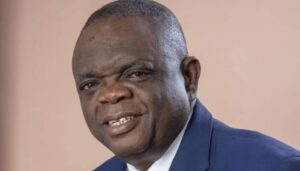
The Chief Executive Officer of Wealthgate Advisors, Mr. Biyi Adesuyi and the Centre for the Promotion of Private Enterprise (CPPE) have faulted the recent comments by the World Bank on the ongoing reforms of the present government, describing it as a recipe for economic disaster.
Recently, the World Bank Senior President, Indermit Gill, had declared in Abuja that it would take at least 10 or 15 years for President Bola Tinubu’s economic reforms to transform the economy, and therefore advised the Federal Government not to relent, but continue with the reforms.
Reacting to the comment, the Chief Executive Officer, CPPE, Dr. Muda Yusuf, faulted the World Bank representative’s advice, insisting most of the institution’s prescriptions do not adequately capture the peculiar factors and variables of a large number of developing economies, including such as Nigeria’s.
The CPPE boss insisted that a policy would only be described as effective when it takes adequate account of the context in which such policies would be implemented.
“The truth is that the economic and social contexts of most African countries or developed countries, are different from the context perhaps in Asia or in the more advanced economies.
“My advice will be that the World Bank and International Monetary Fund (IMF) should have a rethink on some of these policy models, come up with policy interventions that should be specific to African economies, or many of these developing economies. That way some of their policies will work better and reflect more of the prevailing conditions or realities in these economies,” Yusuf stated.
The immediate past Director General of the Lagos Chamber of Commerce and Industry (LCCI) also described the World Bank’s Chief’s remarks as contradictory; since the same institution had earlier described Nigeria as having the highest number of people living in poverty, globally. He then wondered how same institution could be canvassing for the continuation of the reforms that had resulted in escalation of such poverty.
“Now interest rate is about 38% or 35 % depending on the company. In some cases, it’s up to 40 %. So if we are saying that we should stay the course, does it mean we should continue with an economy where the interest rate is 40%, 50%?
“In the report there is a lot of commendation for the CBN, and that the CBN should continue with the tightening policy. So, if we continue on that trajectory, that means interest rates at some point will get to 60%. How do you run an economy in that situation? Our Cash Reserve Ratio (CRR) is already 50%. That means 50% of our deposit is being sterilised by CBN. If you say we should stay the course, that also means at some point, almost 70% of our deposit will be sterilised with the CBN. In other words, the CRR will go up to 60-70%. Of course that is not sustainable.
“ I don’t see how citizens or businesses will have the stamina to stay such course in the sense in which the current situation is, because practically everybody has been stretched to the limit,” he added.
The CPPE chief executive believed what is needed is to go back to the drawing board and see how some of the policies could be tweaked to effectively address their social outcomes.
Adesuyi, on his part, would rather see the World Bank’s position as a road to economic disaster; since it would be to the detriment of the people and businesses to sustain such ‘deficient reforms’ for such a long period.
He argued that while the decision to float the naira was commendable, since it was meant to check rent-seeking and arbitrage, the policy seemed not to be achieving the desired results due to not being properly managed.
According to him, rather than leave the naira to float, the relevant authorities should have capped the value, since the nation’s economy is import-dependent.
“In an import-dependent economy such as ours, nobody allows its local currencies to float without putting a cap. That is why I believe that while the decision to float the naira was good, the apex bank should have pegged it at N1,000 to avert the disaster we are seeing on the economy space.
“The present arrangement only suits the government since they now have more money to share. That is why you hear them talk about N70,000 minimum wage. But, a bag of 50kg rice, when the minimum wage was slightly over N30,000, few years ago, was about N15,000. That means you could buy a bag of rice, chicken and even vegetable oil with that amount then. But now with a bag of rice over N100,000, that means your N70,000 minimum can not even buy a bag of rice, not to talk of other ingredients that should go with it.
“So the question we should ask ourselves is: how feasible is this World Bank’s recommendation, considering the hardship the policy is presently having on businesses and citizens here? Besides, is the World Bank asking us to continue to live with this massive devaluation and the ruins it has caused individuals and businesses, for the next 10 to 15 years?” he asked rhetorically.
The Wealthgate Advisors boss, however, advised African leaders to be wary of counsels from those foreign financial institutions since their solution for developed economy is different from that of the developing ones, such as Africa’s.
Adesuyi added that there is no way businesses and the citizens can survive the excruciating pains, caused by the ongoing reforms, for another 10 to 15 years. Instead, the seasoned financial analyst would want government to be intentional about coming up with policies that would give immediate relief to the financially-drained Nigerians.




Comments